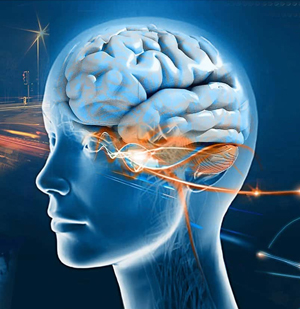
Neuro-Ophthalmology
Neuro-Ophthalmology is a specialized branch of ophthalmology that deals with visual problems related to the nervous system — particularly the optic nerve, brain, and the visual pathways connecting them.
At Vision 2020 Complete Eye Care, Dr. Uday Tekchandani offers comprehensive evaluation and management of complex vision disorders that arise from neurological causes, combining expertise in both ophthalmology and neurology for accurate diagnosis and targeted treatment.
Symptoms Requiring Neuro-Ophthalmic Evaluation
Consult a neuro-ophthalmologist if you experience any of the following visual or neurological symptoms:
- Sudden or unexplained loss of vision in one or both eyes
- Double vision or misalignment of the eyes
- Abnormal movements of the eyes (nystagmus)
- Drooping eyelids (ptosis) or unequal pupil sizes
- Visual field defects or blind spots
- Headache or pain behind the eyes associated with visual disturbances
Common Causes & Conditions Treated
Neuro-ophthalmic disorders may arise from various underlying neurological or systemic conditions. These include:
- Optic Neuritis: Inflammation of the optic nerve often linked to multiple sclerosis or autoimmune diseases.
- Ischemic Optic Neuropathy: Sudden vision loss caused by reduced blood flow to the optic nerve.
- Papilledema: Swelling of the optic disc due to increased intracranial pressure.
- Ocular Myasthenia Gravis: Autoimmune condition causing fluctuating drooping of eyelids and double vision.
- Third, Fourth, and Sixth Nerve Palsies: Eye movement abnormalities leading to diplopia (double vision).
- Brain Tumors or Aneurysms: Structural lesions compressing visual pathways.
Diagnosis & Treatment
Neuro-ophthalmic conditions require precise evaluation and coordinated management. Dr. Tekchandani offers a holistic diagnostic and treatment protocol, which includes:
- Comprehensive Eye & Neurological Examination: Including visual field testing, color vision, and pupil reflex assessment.
- Optical Coherence Tomography (OCT): To analyze optic nerve and retinal nerve fiber layers in detail.
- Neuroimaging (MRI / CT Scan): To detect structural brain or optic pathway abnormalities.
- Targeted Medical Therapy: Use of corticosteroids, immunosuppressants, or neuroprotective agents as required.
- Surgical Management: In select cases such as optic nerve decompression or correction of ocular misalignment, using No Stitch, No Patch, No Injection micro-techniques wherever suitable.
Key Advantage: Each patient receives personalized care integrating ophthalmic and neurological expertise for accurate diagnosis and long-term vision preservation.
Preventive & Lifestyle Measures
Though not all neuro-ophthalmic conditions can be prevented, these measures help maintain optic nerve health and neurological wellness:
- Maintain optimal blood pressure, sugar, and cholesterol levels.
- Adopt a healthy lifestyle with regular exercise and antioxidant-rich diet.
- Protect your head and eyes from trauma during physical activities.
- Undergo timely eye and neurological check-ups if you have autoimmune or vascular diseases.
Why Choose Dr. Uday Tekchandani for Neuro-Ophthalmology
- Extensive training in managing optic nerve and brain-related visual disorders.
- Access to advanced neuro-imaging and diagnostic technologies for precision evaluation.
- Integrated management in coordination with neurologists, radiologists, and neurosurgeons.
- Minimally invasive treatment protocols ensuring No Stitch, No Patch, No Injection comfort where applicable.
- Focused on long-term neuro-visual rehabilitation and patient-centric care.
